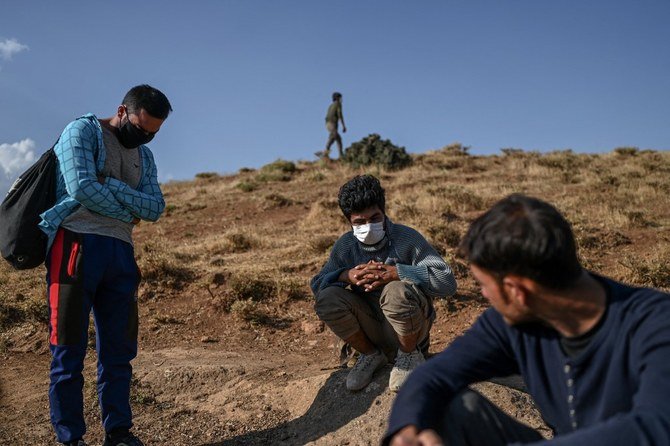Turkish authorities are violently returning Afghan asylum seekers from Iran as soon as they arrive in Turkey, Human Rights Watch has said.
The practice is in violation of international law and some families have been separated as a result, the rights organization said.
Six Afghans, five of whom were pushed back, told HRW that the Turkish army had severely beat them and their fellow travelers and expelled them in groups of 50 to 300 people as they tried to cross the border into Turkey.
Some people had their bones broken as a result of the force used.
“Turkish authorities are denying Afghans trying to flee to safety the right to seek asylum,” said Belkis Wille, senior crisis and conflict researcher at HRW. “Turkish soldiers are also brutally mistreating the Afghans while unlawfully pushing them back.”
“EU member states should not consider Turkey a safe third country for Afghan asylum seekers and should suspend all deportations and forced returns of Afghan nationals, including to third countries like Turkey where their rights would not be respected,” Wille said.
“They should also ensure that Afghans entering the EU via Turkey have access to fair and efficient asylum procedures,” he added.
HRW said it had remotely interviewed six Afghans between Sept. 25 and Oct. 11. Five of them were hiding in Turkey to avoid being expelled to Iran, and one had been forcibly returned to Iran for a third time. All had fled Afghanistan shortly before or after Aug. 15, when the Taliban took control of Kabul.
The Afghans said they had traveled through Pakistan and Iran, and that Iranian smugglers took them to the border with Turkey in the middle of the night and told them to run across. Turkish soldiers fired above their heads and two said they were brutally beaten by soldiers.
One of the Afghans said he successfully remained in Turkey on his first attempt while another had been deported back to Iran. The other four said Turkish soldiers forced them back up to three times before they succeeded in remaining in Turkey.
Two said that Turkish forces destroyed their possessions, and those of everyone in the group they were expelled with.
“Once they arrested us, they confiscated our phones, money, food, and anything else we were carrying and burned all of our things in a big fire,” one woman said. “I assume they did this to send the message that we should not try to cross the border again.”
One man said they stripped the men in his group down to their underwear, burned their clothes and belongings, and then forcibly returned them.
Another man said that soldiers beat them with the butts of their guns and that several men in his group had broken hands, arms, and legs from the cruel beatings.
Another man said he saw Turkish soldiers beating people he had crossed with and that they were covered in blood and had wounds to their heads.
“They beat me for about 20 minutes with the butts of their guns and sticks, leaving me bleeding,” he said.
One woman said that on her third attempt to cross into Turkey with her two children, her brother, his wife, and their child, Turkish soldiers detained her brother and his wife and expelled them, leaving their child with her.
Turkey hosts the world’s largest number of refugees including 3.7 million from Syria who have been granted temporary protection status, and over 400,000 refugees and migrants from Afghanistan, Iraq, and other countries.
HRW has previously documented illegal pushbacks and beatings of asylum seekers, including returning refugees to Syria.
The organization said that while most people interviewed said they were forcibly returned close to the border, one man said that he and eight of his relatives were deported after they went to a local immigration office in Turkey after feeling ill.
“When we got there, the authorities arrested us and took our phones and turned them off, so the rest of our family had no idea what happened to us,” he said.
“They held us for two nights and one day, and only fed us twice … after the second night they put us onto buses with about 100 other people and drove us to the border. One soldier at the border told us, ‘here is the border. Don’t come back. If you do, we will beat you.’”

